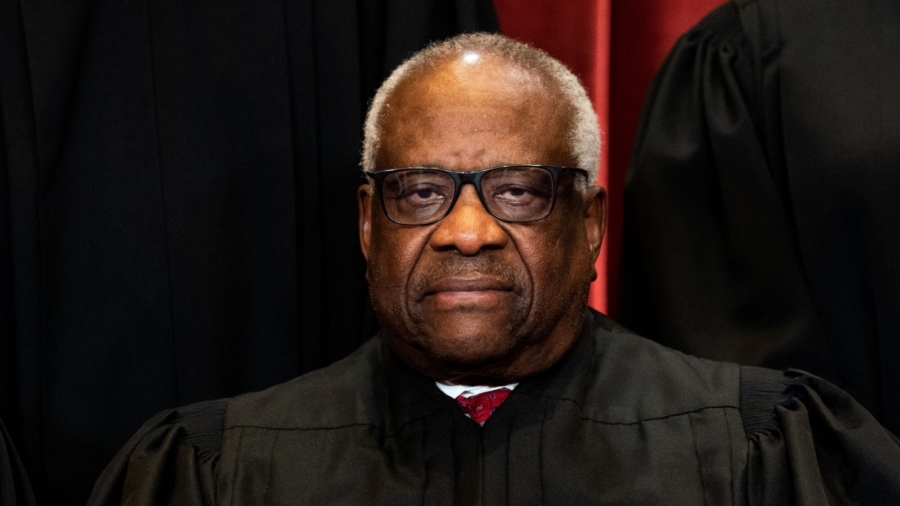Supreme Court Justice Clarence Thomas issued a dissenting opinion regarding the high court’s decision not to take up a case that claimed the use of aborted fetus cells in developing COVID-19 vaccines.
The U.S. Supreme Court turned away on Thursday an appeal by 16 New York doctors, nurses, or other health care workers, most of whom had either resigned from their jobs, lost hospital admitting privileges, or were fired for refusing the vaccine.
“[The petitioners] object on religious grounds to all available COVID-19 vaccines because they were developed using cell lines derived from aborted children,” Thomas wrote in his dissent (pdf).
Unlike primary cell culture that is directly isolated from parental tissue, cell lines are usually cloned from a single cell, meaning it much easier to grow and maintain. Providing a homogenous population of cells, they can keep certain phenotypes and functions from an ancestor cell for an extended period of time, or sometimes indefinitely.
Such derivation, however, had raised moral concerns after the Johnson & Johnson vaccine was known to be developed, tested, and produced with abortion-derived cell lines (pdf).
Although its stem cell line came from the retinal cells of an 18-week-old fetus that was aborted in 1985, like other U.S. vaccines, it does not contain actual aborted fetal tissues from decades ago—but retains their lab-replicated ones.
Vaccines of Pfizer-BioNTech and Moderna also used human fetal cell lines, which originated with an aborted fetus in the 1970s, in testing stages.
The group had sued the District Court for the Northern District of New York over the state’s COVID-19 vaccine mandate—announced last August—on religious grounds. The district court issued a preliminary injunction that was later reversed by the U.S. Court of Appeals for the 2nd Circuit. The Supreme Court ultimately declined to hear the religious challenge by the plaintiffs.
“Three of us would have granted,” Thomas wrote on behalf of the other two dissenters, Justices Samuel Alito and Neil Gorsuch. “Unfortunately, the Court declines to take this prudent course.”
The appointee of former President George H.W. Bush stated in the opinion that: “The New York mandate includes a medical exemption but no religious exemption, even though ‘allowing a healthcare worker to remain unvaccinated undermines the State’s asserted public health goals equally whether that worker happens to remain unvaccinated for religious reasons or medical ones.’”
“There remains considerable confusion over whether a mandate, like New York’s, that does not exempt religious conduct can ever be neutral and generally applicable if it exempts secular conduct that similarly frustrates the specific interest that the mandate serves,” he wrote.
New York is one of the only three U.S. states that don’t allow religious exemptions to the COVID vaccines for health care workers, alongside Maine and Rhode Island.
The state said medical exceptions are meant for the small number of people who have had a serious allergic reaction to the COVID-19 vaccines and that longstanding health care worker vaccine mandates for measles and rubella have no religious exemptions.
New York’s Department of Health on Aug. 26 ordered health care professionals who come in contact with patients or other employees to be vaccinated by Sept. 27. That deadline was delayed to Nov. 22.
State data show nearly 37,000 New York health care workers either resigned, retired, or were fired or furloughed for being unvaccinated.


